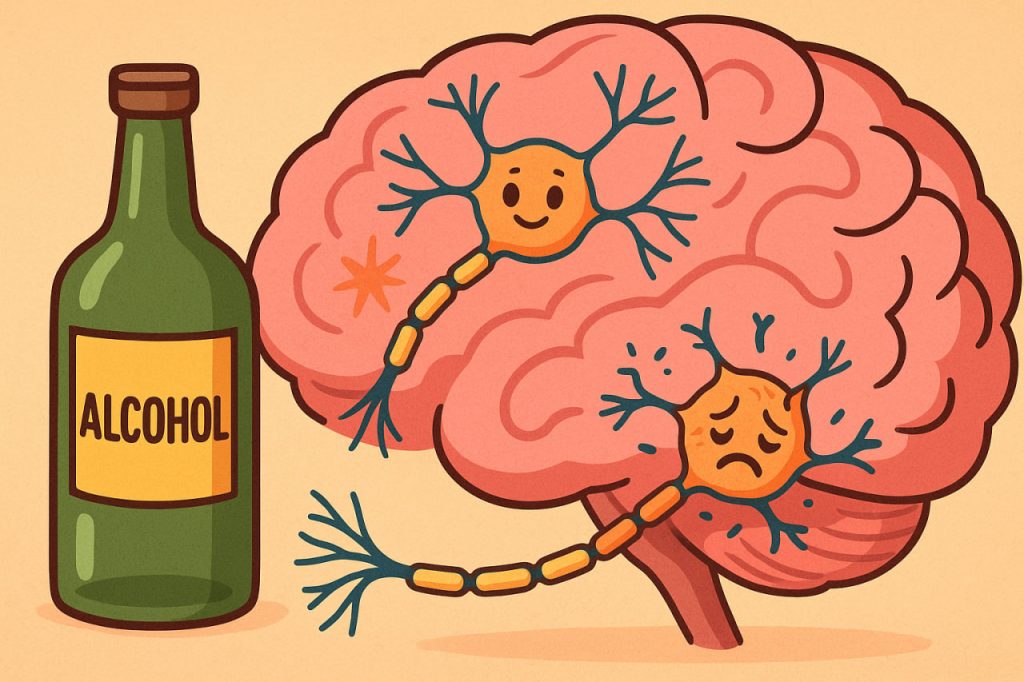Alcohol is one of the most widely consumed psychoactive substances, but its effects on the brain are among the most harmful. While moderate drinking may seem harmless, excessive or chronic alcohol use damages the nervous system, particularly neurons—the brain cells responsible for transmitting signals. This damage impacts memory, learning, emotions, and overall brain health.
How Alcohol Affects the Brain
When alcohol enters the bloodstream, it quickly reaches the brain, crossing the blood-brain barrier. It disrupts the balance of neurotransmitters, the chemicals that neurons use to communicate. Initially, this may cause relaxation or euphoria, but with repeated exposure, alcohol begins to harm the neurons themselves.
Neurotransmitter Disruption
Alcohol reduces the activity of glutamate, an excitatory neurotransmitter, while increasing the activity of GABA, which has inhibitory effects. This combination slows down brain function, leading to impaired coordination, slower reactions, and poor judgment. Over time, this imbalance stresses neurons, reducing their efficiency and survival.
Oxidative Stress and Inflammation
Chronic alcohol use generates oxidative stress—an excess of harmful molecules called free radicals. These damage cell membranes and DNA. At the same time, alcohol triggers inflammation in the brain, further weakening neurons and supporting their gradual degeneration.
Structural Brain Damage
Long-term alcohol abuse shrinks parts of the brain, especially the frontal lobe (responsible for decision-making and self-control) and the hippocampus (involved in memory). As neurons die, connections between them are lost, leading to difficulties in learning, concentration, and emotional regulation.
Alcohol and Memory Loss
Heavy drinking often causes memory gaps or “blackouts.” This happens when alcohol interferes with the hippocampus, preventing new memories from forming. With repeated abuse, memory problems can become permanent due to neuron death in this region.
Long-Term Consequences
Continuous alcohol exposure can lead to alcohol-related dementia, neuropathy (nerve damage), and even higher risks of strokes. Neurons do not regenerate easily, so much of the damage is irreversible. However, quitting alcohol can prevent further harm and allow partial recovery of brain function.
Conclusion
Alcohol severely harms neurons by disrupting neurotransmitters, causing oxidative stress, and damaging brain structures. Over time, this leads to memory loss, poor decision-making, and cognitive decline. Avoiding alcohol intake is one of the most effective ways to protect brain health and preserve neurons for long-term well-being.
Glossary
- Neurons – brain cells responsible for transmitting information.
- Neurotransmitters – chemicals that allow communication between neurons.
- Blood-brain barrier – a protective filter that controls which substances can enter the brain.
- Oxidative stress – cell damage caused by free radicals.
- Hippocampus – brain region crucial for memory formation.


